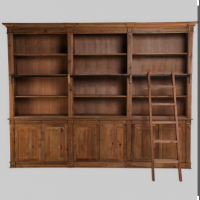A Home Away From Home: Exploring Family Day Care in Tarragindi

Strong 8k brings an ultra-HD IPTV experience to your living room and your pocket.
Table of Contents
- Introduction
- What Is Family Day Care?
- Quality of Care in Australia
- Family Day Care in Tarragindi – Local Snapshot
- Cost & Affordability
- Flexibility & Non‑Standard Hours
- Conclusion
1. Introduction
Choosing the right early education setting ranks among the most important decisions for working families—and Australia’s data shows why.
According to the Productivity Commission, over half of children aged 0‑5 50.4% regularly attend formal early learning services, demonstrating the critical role these programs play in modern family life.
In suburbs like Tarragindi (Brisbane, 4121), family day care—delivered in educators’ homes—provides a warm, intimate alternative to larger centre-based facilities. It’s no surprise that around 66 % of these services now meet or exceed the National Quality Standard—the strongest performance since ratings began.
In fact, once the Child Care Subsidy is taken into account, family day care costs families just 3.7 % of disposable weekly income, virtually identical to centre‑based care at 3.8 % . Let’s explore why many parents describe it as a genuine “home away from home.”
2. What Is Family Day Care?
Under Australia’s National Quality Framework (NQF), family day care (FDC) is a regulated, small-group early education model. Individual educators, working through approved providers, care for up to four children under school age (plus a few school-aged children) in a residential setting. Educators must hold qualifications, first-aid certification, and maintain safe home environments .
3. Quality of Care in Australia
The Australian Children’s Education & Care Quality Authority (ACECQA) reports that in the latest NQF snapshot, 66% of family day care services are rated “Meeting” or “Exceeding” the National Quality Standard — the best result since reporting began. Nationally, 89% of all early education services meet or exceed these standards.
4. Family Day Care in Tarragindi – Local Snapshot
Tarragindi currently features two Family Day Care Tarragindi providers—both with vacancies—offering services that are rated between “Meeting” and “Exceeding” the National Quality Standard, in line with Brisbane’s overall performance. These carers are fully registered with accredited providers, ensuring quality, regulated home-based learning environments.
5. Cost & Affordability
The average daily fee for family day care in Tarragindi ranges from AUD $115 to $125.
Across metro Australia in 2022, the median weekly cost for FDC was AUD $550 for 50 hours—slightly less than centre‑based care at AUD $565.
Government’s Child Care Subsidy (CCS) brings FDC out-of-pocket costs to around 3.7% of weekly disposable income, on par with centre-based care (3.8%).
Locally, Tarragindi’s average childcare cost is about AUD $147–$152/day (including centres) — FDC remains modestly lower.
6. Flexibility & Non‑Standard Hours
FDC’s structure supports families with varied work schedules:
Over 50% of family day care services provided care outside standard hours in 2022.
Around 7% offered overnight care — important for shift workers, essential services employees, or emergency-response families.
Parents on forums note benefits during irregular hours but caution about needing backups if a carer is unavailable.
7. Conclusion
Family day care in Tarragindi offers a warm, home-style environment with qualified educators, strong government-regulated quality standards, and affordability that competes well with centre-based care.
It also stands out for its adaptability—especially for families needing flexibility beyond typical work hours. With vacancies available and quality aligned with national benchmarks, it remains a compelling choice for many local families.
If you’re considering FDC, visit StartingBlocks.gov.au for profiles, ratings, and subsidy tools, or contact local providers directly to arrange interviews and home visits.
Let me know if you'd like help drafting inquiries, parent interview questions, or comparing FDC with centre-based care!
Note: IndiBlogHub features both user-submitted and editorial content. We do not verify third-party contributions. Read our Disclaimer and Privacy Policyfor details.




